Dark is divine: What colour are Indian gods and goddesses?
- Published
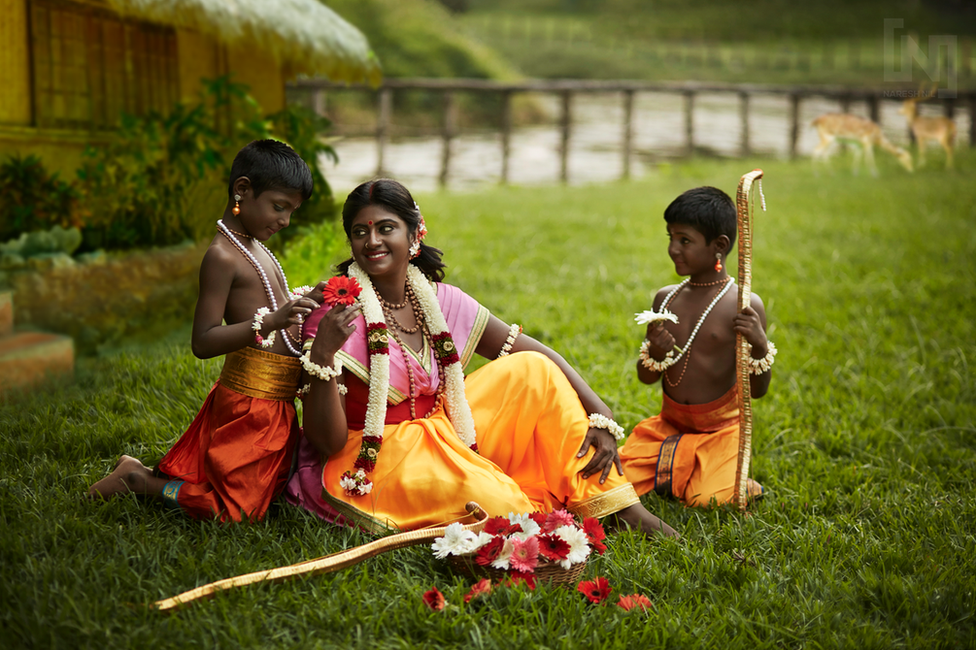
Goddess Sita is photographed with her twin sons Luv and Kush
In India where light skin is coveted, a new campaign is re-imagining popular Hindu gods and goddesses with a darker skin, writes the BBC's Geeta Pandey in Delhi.
The desire for fairer skin is not new in India and for centuries, fair complexion has been considered superior.
Fairness creams are among the highest selling cosmetic products in the country and top Bollywood actors and actresses regularly appear in commercials endorsing fairness products.
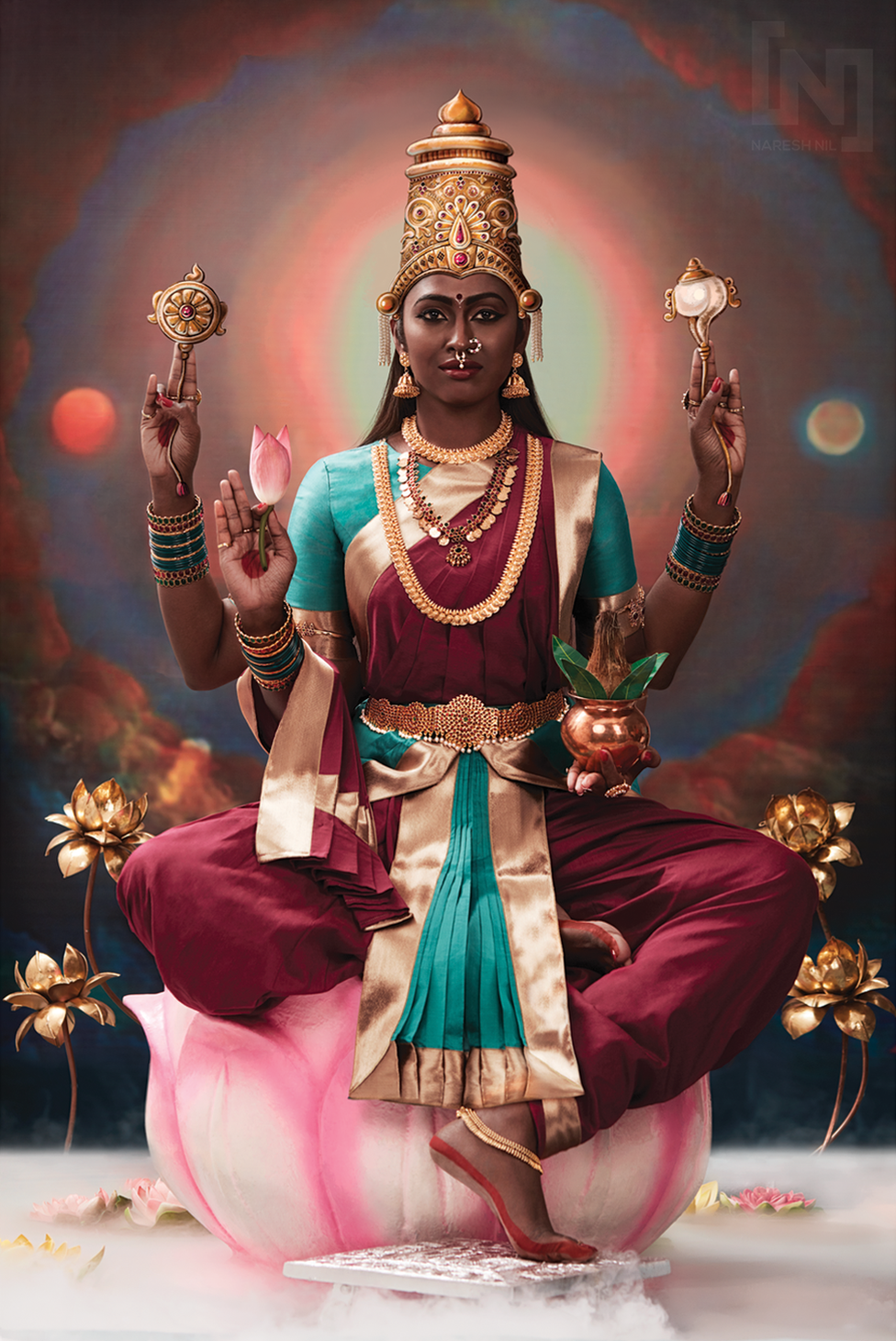
Model Suruthi Periyasamy was "thrilled" when she was chosen to portray Lakshmi, the goddess of wealth
In recent years, creams and gels have been introduced which claim to lighten armpit hair and even female genitals, and advertisements encourage customers to believe that lighter skin tones would help them improve their lives by getting a better job or win them love.
In the past few years, there have been campaigns such as Dark is Beautiful, external and #unfairandlovely, calling on people to celebrate dark skin.
Yet, the unhealthy obsession with light skin has continued and, as ad filmmaker Bharadwaj Sundar says, it's not just limited to earthly beings, it includes the divine too.
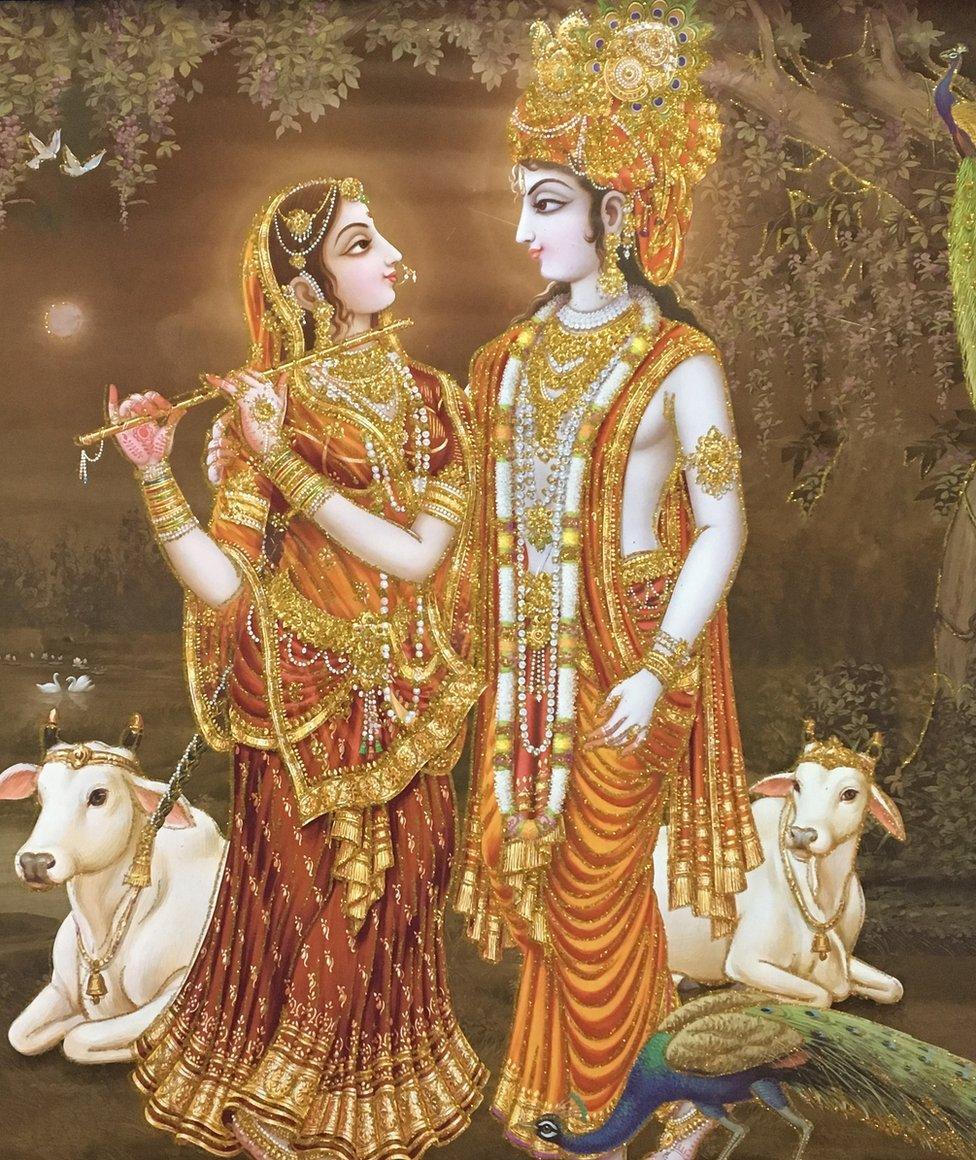
Even Krishna, who is described as a dark-skinned god in the scriptures, is often shown as fair-skinned
"All the images of the popular gods and goddesses that we see around us, photographs in our home shrines or prayer halls, online, on calendars, stickers and posters in shops and pasted behind auto-rickshaws, all show them to be light-skinned."
In a culture obsessed with fairness, Mr Sundar points out that even Krishna, who is described as a dark-skinned god in the scriptures, is often shown as fair. And so is the elephant-headed Ganesha, even though there are no white elephants in India.
"Everyone here prefers fair skin. But I am a dark-skinned person and all my friends are dark-skinned too. So how do I identify with fair-skinned gods and goddesses?"
To fight this disconnect, Mr Sundar, who is based in the southern city of Chennai, teamed up with photographer Naresh Nil and the two have come up with "Dark is Divine" - a project that portrays gods and goddesses with a darker skin colour.
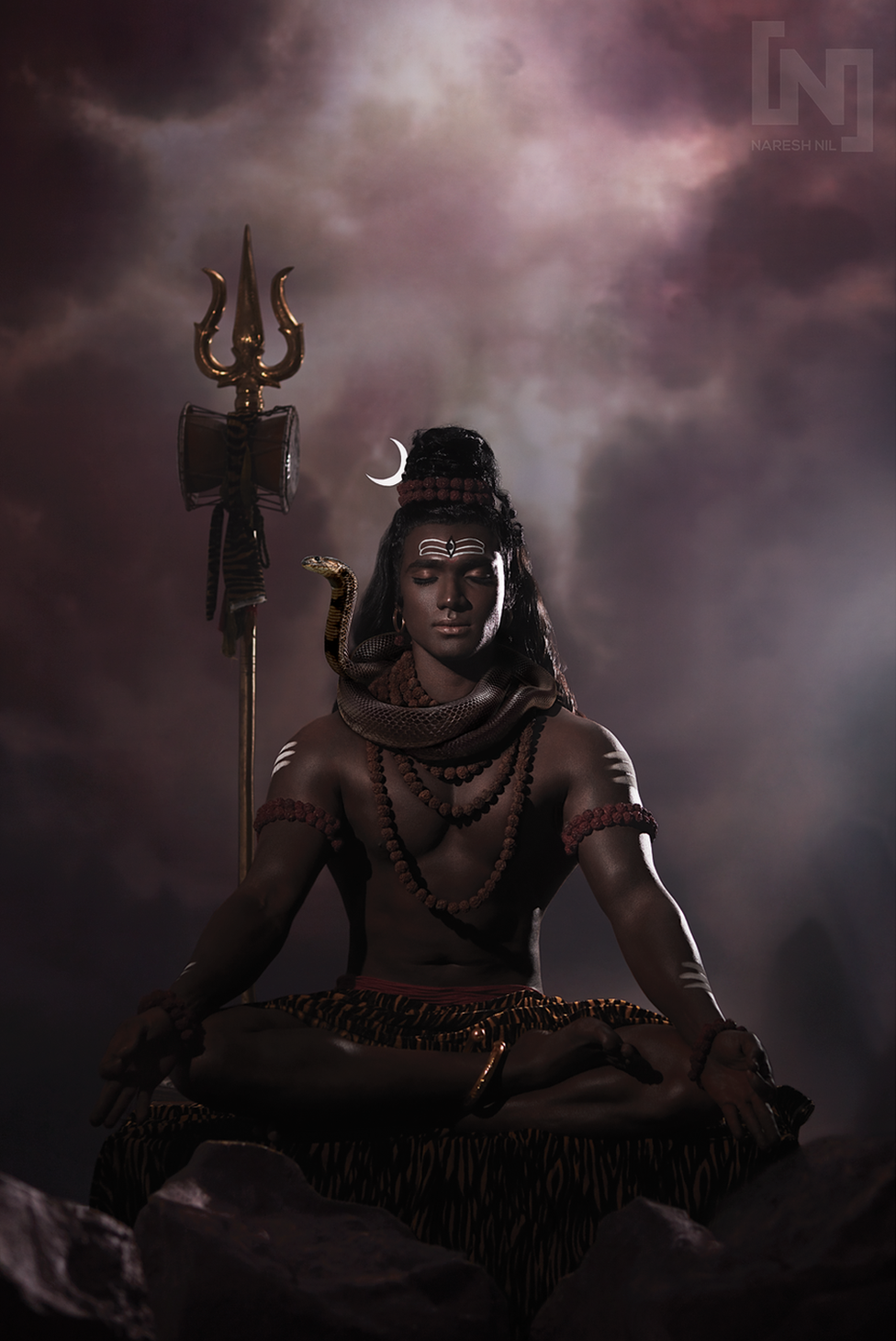
God of destruction Shiva is part of the Hindu holy trinity
They recruited "dusky" male and female models, dressed them up as gods and goddesses and shot the campaign images over two days in December and the result is quite stunning.
Model Suruthi Periyasamy told the BBC that she had to face too many rejections in the past "because no-one wanted a dusky model" and that she was "thrilled" when she was chosen to portray Lakshmi, the goddess of wealth.
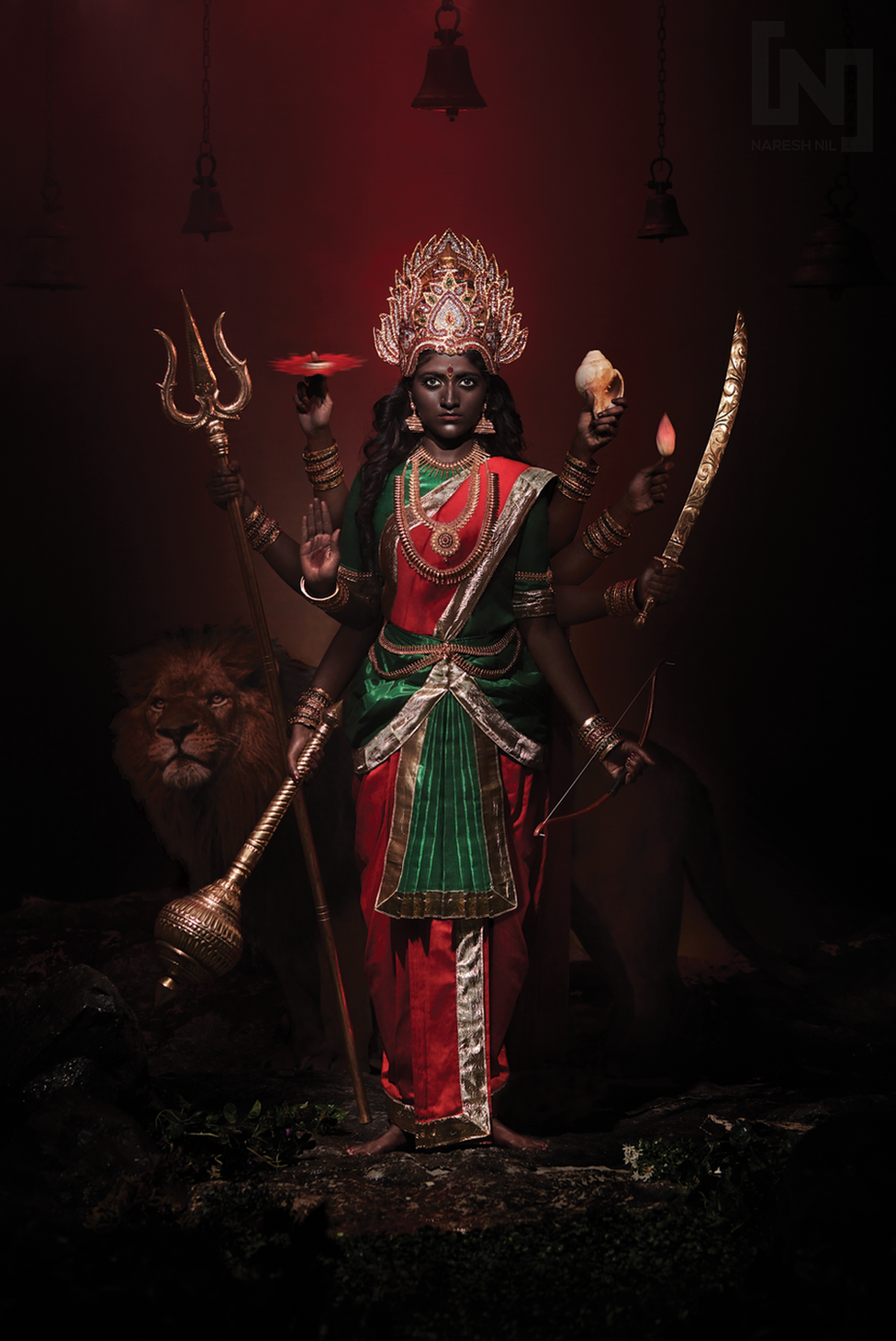
Durga is almost always portrayed as a fair-skinned goddess
"Lakshmi is the most popular goddess in India, everyone wants a daughter-in-law like her because she brings prosperity so I feel so blessed to be her."
Ms Periyasamy says everyone talks about working with dark-skinned models, but no-one really encourages them. She says she hopes that this campaign will "change the minds of some people to allow us to shine in life".
Since the campaign was launched last month, Mr Sundar says they have received lots of calls and the responses have been largely positive, though some people have accused them of unfair biases, pointing out that goddess Kali is always portrayed as black.
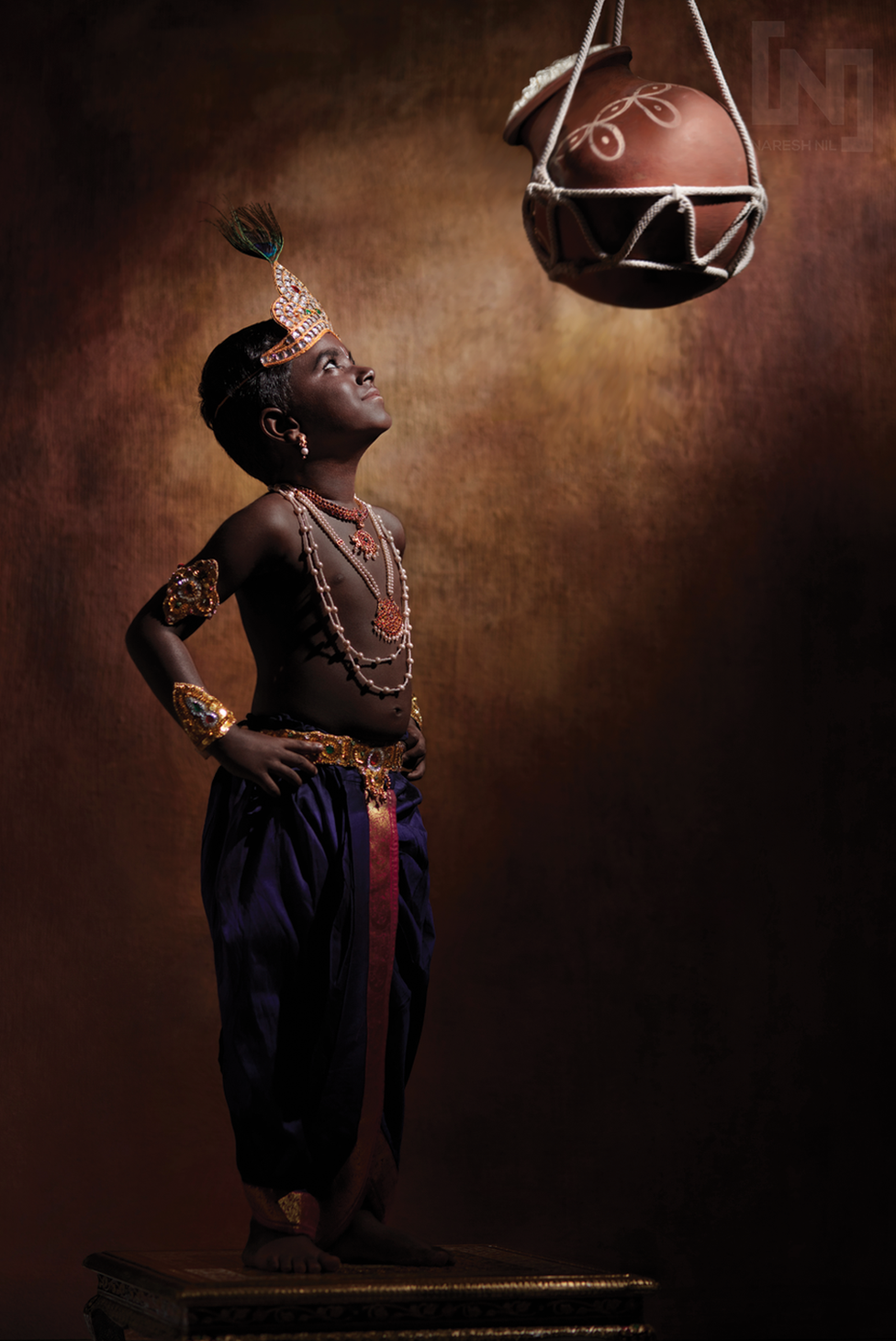
Child Krishna is one of Hinduism's most popular gods
Mr Sundar says he's a devout Hindu and does not mean disrespect to anyone but "if we look around, we find that 99.99% times, the divine is fair-skinned".
"Appearance plays a major role in how we perceive people, especially women, and we felt that this needed to be addressed," he says.
"And through the Dark is Divine project, we are trying to challenge the belief that fair skin is superior."